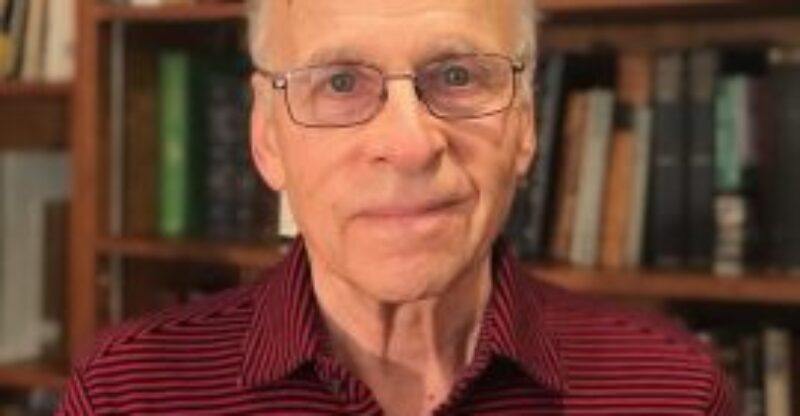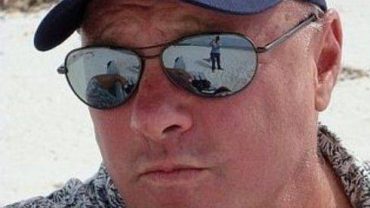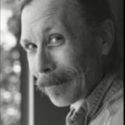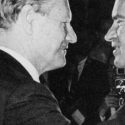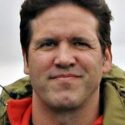The Journey 135. Anton Chaitkin: The Right to Self-Improve, The Threat to Would-Be Masters
Publisher R. A. “Kris” Millegan speaks with Anton Chaitkin about their intelligence agency fathers, secret societies, and Anton’s latest book, WHO WE ARE: America’s Fight for Universal Progress, from Franklin to Kennedy: Volume I – 1750s to 1850s. (Anton is deep into completing Volume Two, to be followed by Volume III.) They also discuss the people who made America a prosperous, industrial power, and why their opponents feared Presidents Lincoln, Franklin D. Roosevelt, and John F. Kennedy.
And they discuss Benjamin Franklin, who instigated the start of the industrial revolution in England before the American Revolution; the insanity of those who want to keep much of the world poor and under-developed, and the futility of ruling people without their consent and blocking mankind’s right to self-improve. (“God is the only real power.” “The Devil does not run the world. The Devil wants to wreck things.”)
Anton’s 1985 book, TREASON IN AMERICA: from Aaron Burr to Averell Harriman, documents the takeover of U.S. policymaking by agents and allies of the British empire, and his co-authored GEORGE BUSH: The Unauthorized Biography helped defeat Bush’s 1992 re-election attempt.

Kris: My journey started with my daddy telling me some stuff [about being in the CIA, the Vietnam War being “all about drugs,” “these secret societies are behind it all,” “Communism is all a sham,” and to them “it’s all a big game”] that I didn’t understand many years ago. I understand your daddy had an influence on your life.
Anton: My father was in the Army Air Force Intelligence during World War II. He was an expert in teaching the Russian language to scientists. [In an old article I recently found] he stressed that we needed to continue the cooperation that Russian and American scientists had during the war; that the fate of humanity might depend on that. He was a Roosevelt Democrat. His outlook was about justice. This helped to shape my yearning for something good in the world.
In 1966, I met Lyndon LaRouche, and he was warning that the financiers were going to change the strategy of the country away from productive investment to austerity all over the world and wars and so forth. And so, we set up an association to combat this kind of thinking that had taken over the West.
Working on my three-volume WHO WE ARE, I’ve been able to see the astounding parallel between three presidents and their opponents: Abraham Lincoln, Franklin Roosevelt, and John Kennedy and see why they were deeply feared by the most powerful opponents.
Kris: Franklin really turned on his roots … the people that were promoting him.
Anton: When he had polio in the 1920s, he studied American History and what happened in his own family. The real problem is Teddy Roosevelt, his cousin. Franklin said, “This is not the way. This is not what this country was founded about.” He deeply studied the American Heritage. And he chose an ally of Hamilton, Isaac Roosevelt, as his favorite relative.
Lincoln and Franklin Roosevelt and John Kennedy did three things that were outstandingly frightening to the deep opponents in London, on Wall Street, in Boston, and some other places like that. First of all, their program was to have the independence of our country – industrial independence; diplomatic independence; having independent citizens, with good enough living and property situations so each person could have their own kind of personal sovereignty, and the nation has sovereignty so we can maintain our independence.
And this idea was shared with the world. This was spreading very fast, especially after we won the Civil War and we had that prestige. All three of these men had that same outlook about American independence, against the imperialists, against the empire.
The second issue was that they were building up a popular base of support in the population – in the working class, among farmers, among businessmen among black people – all across different sectors of the population. Even though Lincoln had not been the most radical abolitionist, he knew, just like Franklin Roosevelt and John Kennedy knew, that if you are fighting for the nation, you have to fight to raise up the lowliest among us and give them a chance and give them a decent living, a decent part in modern society, otherwise it will just break down.
All three of them built up a very powerful, potentially powerful, kind of base for political support. We don’t have that right now. The country is divided. A lot of the things it’s divided about are cultural and secondary problems, not the basic issue that’s fought about between the real two sides in world power.
Take Kennedy. When he was assassinated, he had as new allies the autoworkers, the civil rights movement, and a whole section of small and middle businessmen. His economic policies were building up the nation and giving us a future with the space program [etc.]. You’re talking about a big majority being developed. Same with the other two men.
And then the last thing that was really frightening to these oligarchs, these people who believe that God made them in charge of the universe, is that the underclasses – people who are at the bottom, or near the bottom, of society – were given a true sense that they had a future, and that they had something to fight for. When conditions improve for workers, that’s when they threaten to go on strike, not when they’re desperate, because then they’re going to get smashed. People get militant when they have a taste that they could have a future.
All three (Lincoln, Roosevelt, Kennedy) encouraged the kind of prosperity that lifted up the bottom. So, the underclasses were on the move in America and in other countries that copied us, like China and Japan. The three of them reached out to all these countries. Kennedy’s special outreach was to Africa, to the nations of Africa, to the nations of Africa.

So-called liberal reformers hated Lincoln, and after his assassination, they wanted to stop his legacy from continuing. One of them was Charles Francis Adams Jr., great-grandson of President John Adams. He was one of the powerful leaders of the reform against Lincoln’s agenda. In 1870, to the Social Science Association, a private group, he said that industrialization has got to be stopped. It is creating conditions of such increased wealth that it must break down, and the threat of it is that it’s raising up these proletariats.
He said there were three proletariats threatening them under this Lincoln agenda: the Chinese in America, here to build our railroads and do other things [under an equal treaty that Lincoln wanted with China]. The second were black people in the South, and the third were the Irish who were coming in without restriction.
They weren’t dangerous because they were dirty or despicable. They were dangerous because they were gaining power in our country, and they look to this country to boost them up. Those groups were patriotic. That was a terrible danger [to Adams and his class], so you have to strike down anybody who’s promoting that kind of patriotism. That is [also the mindset of] today’s establishment. These are the people that murdered John Kennedy and Lincoln.
Kris. When I came across your TREASON IN AMERICA, I just ate that book up. Because you bring out hidden history [and people we’re not told about in school].
Anton: During the Revolution, the country was split between Tories – the pro-British side – and patriots, people who wanted to break from England. This wasn’t simply a matter of who’s going to run the country. It had philosophical implications about whether any group of people had the right to rule other people without their consent. This break included people with strong ties to England, who lived especially in New England and Virginia – and to some extent South Carolina – but I would say Boston was the center of this thing.
When we were setting up our government, these people were in the slave trade. They were in opium trafficking. These were the famous names of New England, the Boston Brahmins, like Cabot, Lowell, Higginson. And these became the “respectable” families of New England. They never approved of the philosophy and mission of the American Revolution.
The best minds in England were friends of Benjamin Franklin, and he was there for eighteen years before the American Revolution. He had a group that set in motion tremendous changes for industry and science. With Franklin’s guidance they organized the invention of the steam engine. They also built the canals of England. In the 1760 and ‘70s, as a result of their work, was the first phase of the world’s industrialization, and great powers were given to mankind.
BUT – the British Empire, led by the British East India Company faction, came to a radical conclusion during the war with America, that they couldn’t win the war by force, and these new powers of building various things with great power should never be allowed for any other country or people.
And they adopted a slogan called “free trade,” which meant that OTHER countries should not be allowed to interfere with trade to protect themselves. The British would be able to send abroad their cheap products, made with modern techniques. And so, they want to use that advance of mankind to HARM mankind.
This is what is behind the absolute necessity for the United States to break from the British Empire and to protect itself and protect its independence by developing manufacturing and modern society. They had to have tariffs. This is Hamilton’s program. This is George Washington’s program. This is Lincoln’s program. It took successive generations to fight for this. We had to constantly go back to this philosophy of the Revolution which was improvement. The improvement of mankind.
Human beings have rights beyond the right to say whatever opinions come into your head. Other rights include having a family that has a chance to have a good living, and having that family respected, and having a nation that is based on the policy on the welfare of the population who lives there.

Kris: After years of reading, and thinking about the power structures of the world, I [deduced] the secret societal system, which is a level about sovereign countries.
Anton: What was the America that these power structures feared? We built our own power structure. This was the national sovereignty idea. And we aided other countries to build themselves up as powers.
There are two powers in the world, not one. The Devil does not run the world. The Devil wants to wreck things. And you have to think of these guys now – think of NATO right now. How did NATO come about? These people are insane.
Franklin Roosevelt had a policy that went back to our founding, and to Lincoln as well, and that was that we had to have the cooperation of the leading nations of the world. The idea of the United Nations was not based on a world government at all. It was based on sovereign nations.
Do you want to look at a different world and make rules for it just because you’re having a fantasy? Or do you want to look at the real world, as Roosevelt did, as all our best leaders have done, and say that we need cooperation between these countries to bring about the kind of progress that’s going to give us safety. You’re not going to be safe unless civilization spreads.
I wrote an article called THE COUP, THEN AND NOW, about the coup against Kennedy, and it goes back to the people that betrayed Roosevelt and the USA. Allan Dulles was trying to continue World War II – that was Churchill’s plan as well – against Russia, and divide the world, and maintain this division of “communist” and “capitalist.”

The shift away from Roosevelt’s perspective gave you this new power structure. And the organization of NATO coincided with the killer teams that certainly killed John Kennedy when he tried to revive FDR.
These kinds of people are still running our foreign policy and domestic policy. That’s what NATO is about. It’s not about protecting against the Soviet Union. (There are people who worried about communism, and they were patriots.) But the idea of NATO was about getting rid of the United States as an independent sovereign country and as an influence in the world. I don’t like to hear that there’s a group of people who rule the world. They don’t rule the world. They’ll destroy the world if we let them do it.
Kris: Roosevelt had a plan to take Dulles and all the people who were financing the Nazis and put them in jail.
Anton: A lot of good people all throughout this period were trying to do good things. The real power in the world should be looked at differently. The real power in the world is the power to invent, to discover the secrets of science that can be used for mankind, the power to build up nations and to improve human life. That is the power used by people who are not oligarchs who work in secret.
The idea of power that’s in the minds of most people, especially when they’re depressed, is wrong.
Power comes from God. And it’s not the power to rule over other people. It’s the power to create. It’s the power to surprise. It’s the power to make things beautiful. That’s the power.
Kris: I agree with you there.
Anton: The brotherhood of mankind is not a fantasy. It is scientific necessity.





